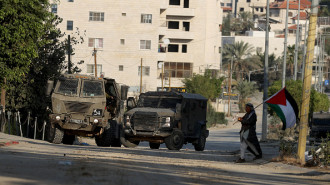Sudan rival generals to resume US, Saudi-led talks on ending war
The Sudanese army and paramilitaries - at war with each other for six months - said Wednesday they had accepted an invitation to resume US- and Saudi-brokered negotiations.
Since April, the war between forces loyal to army chief Abdel Fattah al-Burhan and his former deputy Mohamed Hamdan Daglo, who commands the Rapid Support Forces, has killed more than 9,000 people and displaced over 5.6 million.
Previous mediation attempts have only yielded brief truces, and even those were systematically violated.
In a statement, the army said it had accepted an invitation from Saudi Arabia and the United States to travel to the Saudi city of Jeddah "out of a belief by the armed forces that negotiations is one of the means that may end the conflict".
The RSF later said their delegation "arrived in Jeddah today", in hopes of "reaching a solution that will stop the war and end the suffering of our people."
But the army also said that "the resumption of negotiations does not mean a halt of the national battle of dignity, for the defeat of the rebel militia," in reference to the RSF, which said "our brave forces maintain full control on the battlefield".
Before the first round of the Jeddah talks were suspended, mediators had grown increasingly frustrated with both sides' reluctance to work towards a sustained truce.
Experts believed that Burhan and Daglo had opted for a war of attrition instead, hoping to extract greater concessions at the negotiating table later.
US officials said the talks would resume Thursday and aim for a ceasefire but that it was premature to discuss a lasting political solution.
"The new round will focus on ensuring unhindered humanitarian access and achieving ceasefires and other confidence-building measures," a State Department official said on condition of anonymity.
Another official told reporters that the United States hoped for a "constructive spirit" in the talks, saying, "there is no acceptable military solution to this conflict."
US Secretary of State Antony Blinken, who helped mediate at the start of the crisis, finalised details on the talks on a recent visit to Saudi Arabia as part of a trip largely devoted to the Israel-Hamas war, US officials said.
Also participating in the Jeddah talks will be representatives of the Intergovernmental Authority on Development (IGAD), the East African regional bloc led by close US partner Kenya.
The war in Sudan has decimated already fragile infrastructure, shuttered 80 percent of the country's hospitals and plunged millions into acute hunger.
"For six months, civilians - particularly in Khartoum, Darfur and Kordofan - have known no respite from bloodshed and terror," said UN humanitarian chief Martin Griffiths.
In the western region of Darfur, ethnically motivated attacks by the RSF and allied militias have triggered a new investigation by the International Criminal Court into possible war crimes.
According to the United Nations, Sudan - where many had fled their homes in previous conflicts - is now the largest internal displacement crisis in the world, with over 7.1 million people displaced within the country.
The UN's Griffiths said that six months into the conflict, "basic services are crumbling", disease outbreaks are "stalking the country" and "aid workers continue to be stymied in reaching people in need".
A projection by the US's Johns Hopkins University indicated that "at least 10,000 children under five years of age may die by the end of 2023".
Two years ago, Burhan and Daglo led a coup on October 25, 2021 that derailed a fragile transition to civilian rule.
They later fell out in a power struggle that erupted into all-out war on April 15.
The United States has called for a return to the democratic path but has not brought in civilians to participate in the Jeddah talks.
"They need more time to prepare, organise themselves internally," another US official said.

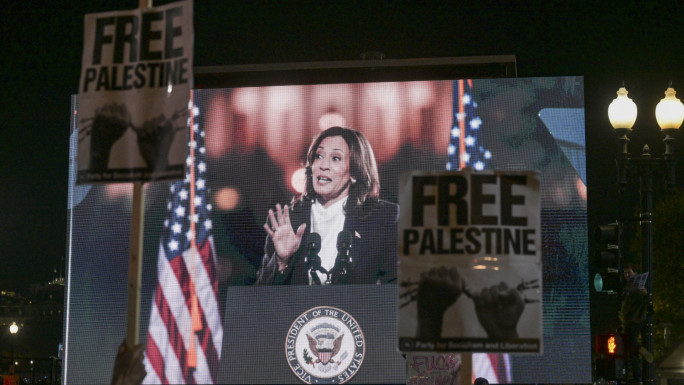

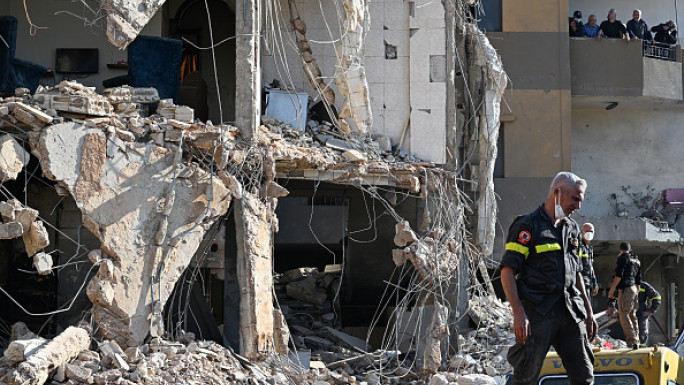
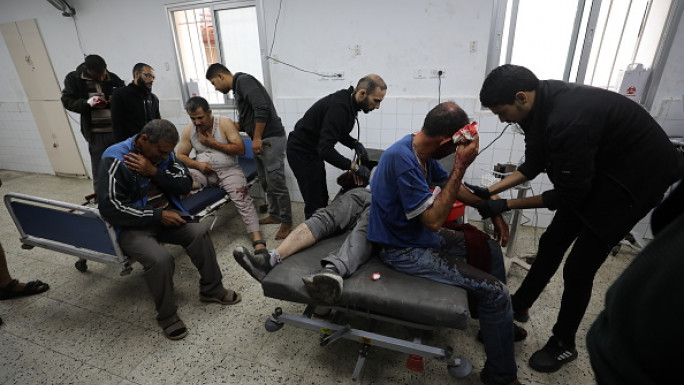
 Follow the Middle East's top stories in English at The New Arab on Google News
Follow the Middle East's top stories in English at The New Arab on Google News
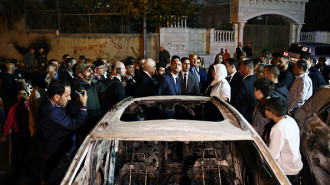
![French Foreign Minister Jean-Noel Barrot [Getty]](/sites/default/files/styles/image_330x185/public/2182722851.jpeg?h=a5f2f23a&itok=UD_yRfLZ)
